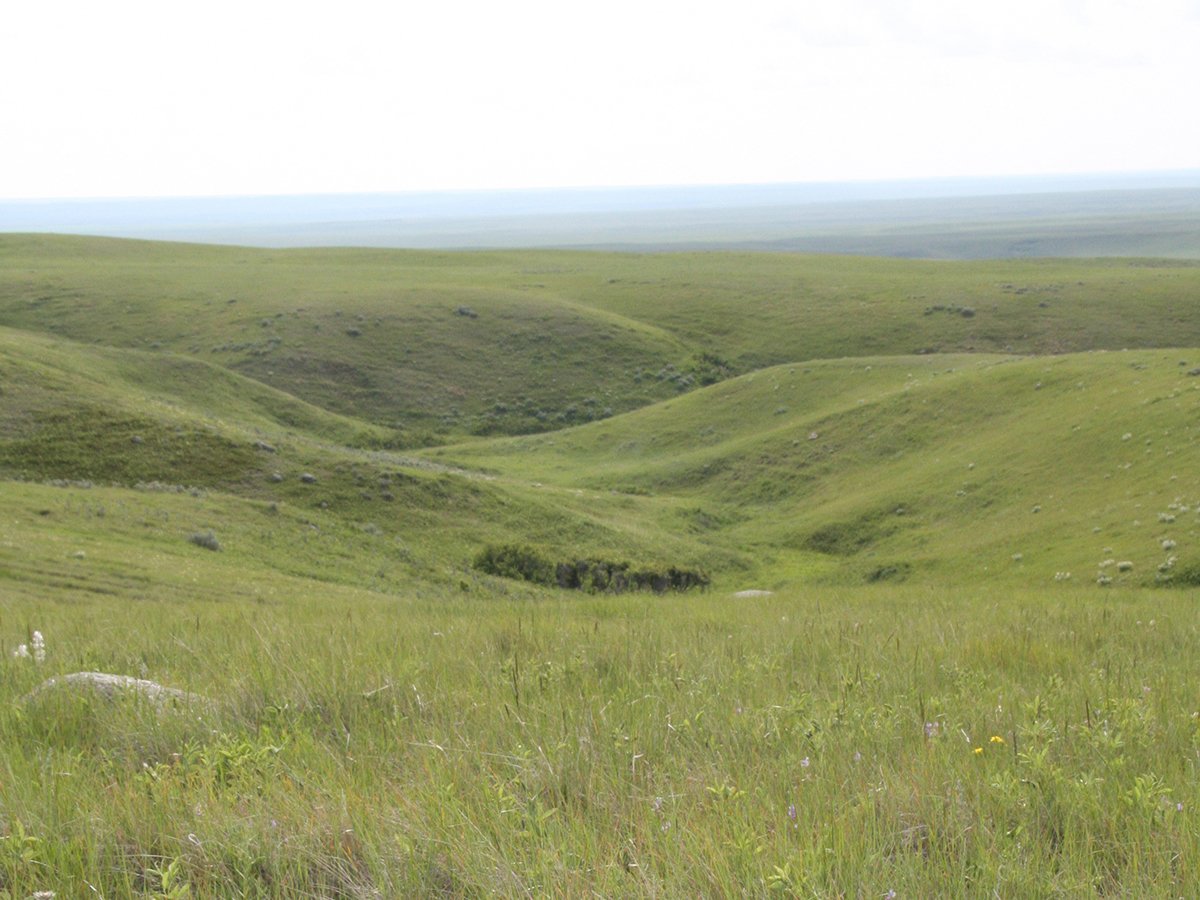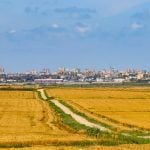Beef producers want international borders to reopen as soon as Canada’s cattle herd is declared free of bovine spongiform encephalopathy.
They are watching the Canadian Food Inspection Agency’s efforts to trace the background of a single cow diagnosed with BSE last week.
They are also preparing for a potential mass slaughter of animals under quarantine.
“I’m really torn about it but I’m afraid it’s going to have to be,” said cow-calf producer Marilyn Jahnke, who is president of the Saskatchewan Stock Growers Association. Nearly 1,000 quarantined animals that may have been in contact with the original infected cow are at risk.
Read Also

Alberta irrigation project on grasslands approved
Environmental concerns raised by Alberta conservation groups over irrigation expansion project within rural municipality
“We support the people who have had their herds quarantined. They must be going through hell. We can’t blame people,” she said.
Canadian Cattlemen’s Association president Neil Jahnke said producers must look at every aspect of their industry and their practices since 1993, when Canada’s first BSE case was discovered in an imported British cow. They must also continue to protect fragile markets developed in Japan, South Korea and the United States in the last decade. Canada exports more than 60 percent of its production, leaving producers anxious about surplus cattle in a small domestic market.
Ben Thorlakson, chair of the Canada Beef Export Federation and an Alberta cattle feeder, was involved in beef politics when BSE was detected a decade ago on a central Alberta farm. That situation was different because the cow was imported from Great Britain and all herd records were intact.
“There is far greater concern this time because no one knew where it came from,” he said.
Thorlakson and Arno Doerksen, Alberta Beef Producers chair and head of the CCA animal health committee, said the industry is likely to be scrutinized and changed.
“We will be reviewing the system and looking at other things we need to change,” Doerksen said. He has a cow-calf operation, as well as a feedlot in southern Alberta.
As more information is gathered, the industry may adopt food safety programs demanding scrupulous records for all farm practices.
“It will be one of a group of things we need to look at with regard to production practices and testing. Clearly though, the message has to be that the system worked. This animal was kept out of the food chain,” Doerksen said.
Canada’s chief trading partners are monitoring the situation, said Eric Davis, president of the National Cattlemen’s Beef Association based in Idaho.
He could not speculate how long borders could remain closed.
“This isn’t about expediency. This is about knowing where we are going and what the facts are on animal health and human safety,” said Davis.
American producers are concerned about the way this crisis affects marketing patterns and the impact on beef demand among North American consumers. No one thinks it will turn into a major outbreak, however.
“We have to take a deep breath and wait for the facts,” he said.
While it is too early to predict whether regulatory reform is required, he said it might force American producers to adopt national identification for their cattle.
“It will give impetus to a mandatory ID process in this country. There are lots of reasons to have a good animal identification system that are good enough reasons in their own right without this,” he said.
The U.S. has a BSE surveillance program similar to Canada’s, where any animals displaying neurological problems are examined.
“Everything doesn’t get tested. We know that. But the ones that show suspicious signs sure do,” he said.
Ruminant-based supplements are banned for ruminant rations, but the issue of animal byproducts supplements needs to be examined scientifically, Davis said.

















